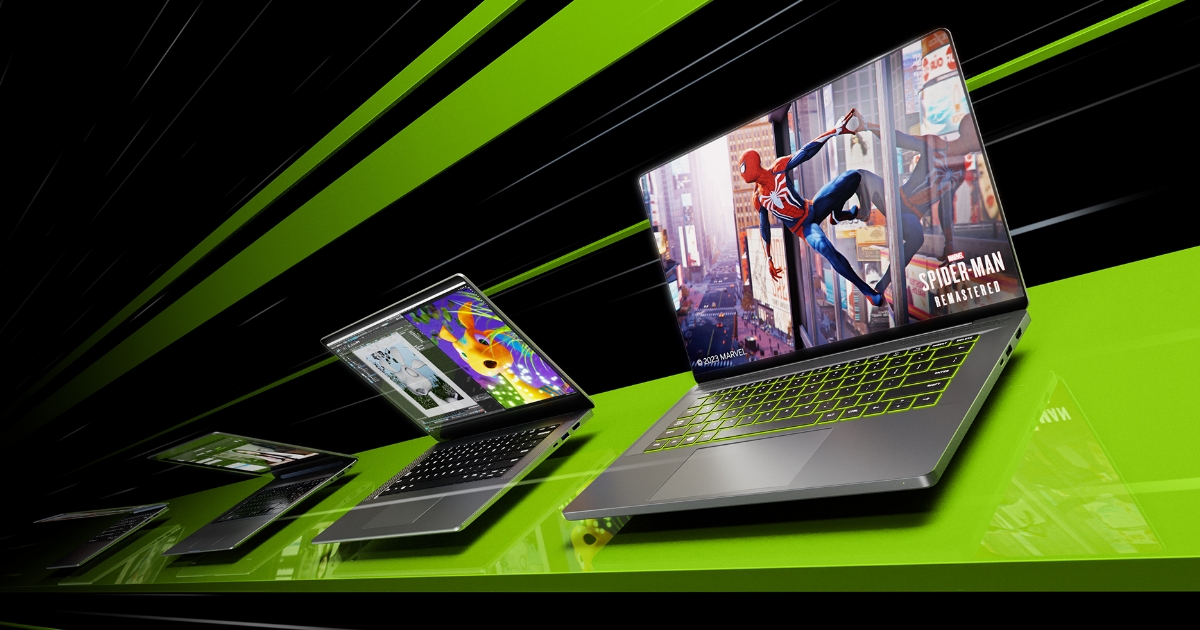Nvidia RTX 5080 for laptops spotted – and it could be a powerhouse GPU that wipes the floor with the RTX 4080 mobile
RTX 5080 might more than make up for the disappointment that was the RTX 4080 laptop graphics card

Nvidia’s next-gen Blackwell laptop GPUs have been the subject of another leak, with a new claim that the GB203 chip, which is set to be the engine of the desktop RTX 5080 graphics card, will not only power the laptop RTX 5090, but also the mobile RTX 5080.
That said, the theory is that with the RTX 5080 notebook incarnation, as you’d expect, it’ll be very much cut-down for core count, but we could still get a much more powerful GPU than the RTX 4080 – which very much disappointed laptop gamers and creatives alike (especially with a weak sauce VRAM loadout of 12GB).
Leaker Moore’s Law is Dead (MLID) provides this rumor, substantiating it with a (purported) photo of an engineering sample of the GB203 chip in question, which is cut down to 8,192 CUDA cores (the full loadout is rumored to be 10,752 cores).
It’s supposedly paired with 16GB of GDDR7 video memory, the source believes – and MLID notes it’s one of his strongest Nvidia sources – with the contention that this will almost certainly be the laptop RTX 5080, or perhaps a 5080 Ti.
VideoCardz, which flagged this one, further notes that the sample chip codename matches a previous leak from laptop giant Clevo.
Analysis: A seriously peppy RTX 5080 is in the cards – or will Nvidia nerf it yet?
Obviously we need to be careful here, and as MLID admits himself, there’s no conclusive proof that this is happening as explained – for example this leak could actually be about a Blackwell workstation graphics card. The leaker doesn’t think so, though, and is fairly convinced this will be the configuration of a laptop RTX 5080, or some spin on that mobile GPU.
As MLID further points out, if the RTX 5090 is getting a boost with VRAM (to 24GB of GDDR7, again in theory), it makes sense that its sibling (and the rest of the Blackwell mobile range) will have to move in concert with that.
Get daily insight, inspiration and deals in your inbox
Sign up for breaking news, reviews, opinion, top tech deals, and more.
We shouldn’t underestimate the generational performance leap that this purported RTX 5080 could provide here. Sticking with the GB203 chip for the RTX 5080 mobile – even though this would be cut down by a quarter, core count-wise – and pairing it with 16GB of GDDR7 (running at 28Gbps) would make for something like a 50% leap in performance compared to the RTX 4080 for laptops.
In some ways, that’s a reflection of the disappointment that was the spec of said RTX 4080 (with 12GB as already noted), but still, it’d represent a fantastic leap for the best gaming laptops in terms of a non-flagship GPU that’d hopefully be an excellent top-end value proposition. MLID even believes it could have more than a 50% gen-on-gen performance boost, but this remains guesswork based on rumors, and so requires that extra bit of caution to be exercised.
There are ways it might not pan out, too, with the leaker pointing out the Nvidia could reduce the speed of the VRAM (below 28Gbps, the base flavor of GDDR7), or otherwise artificially nerf the graphics card (maybe in ways required for power efficiency and thermals, sacrificing some performance). Team Green will likely temper this RTX 5080 so it’s not too attractive a proposition, though it very much appears that way in this leak – which is where the ‘well, this could be an RTX 5080 Ti’ thinking comes in, of course. Not that it makes sense for a 5080 Ti to be in testing quite this early, mind, unless a lot of next-gen laptop GPUs are fairly close to being sprung.
At any rate, the hint is very much that Nvidia’s Blackwell GPUs for laptops could be a real step up, and we may see these RTX 5000 offerings unveiled at CES 2025, or that’s one rumor – which is backed up by the fact that sample chips are apparently now floating around.
You might also like
Darren is a freelancer writing news and features for TechRadar (and occasionally T3) across a broad range of computing topics including CPUs, GPUs, various other hardware, VPNs, antivirus and more. He has written about tech for the best part of three decades, and writes books in his spare time (his debut novel - 'I Know What You Did Last Supper' - was published by Hachette UK in 2013).
